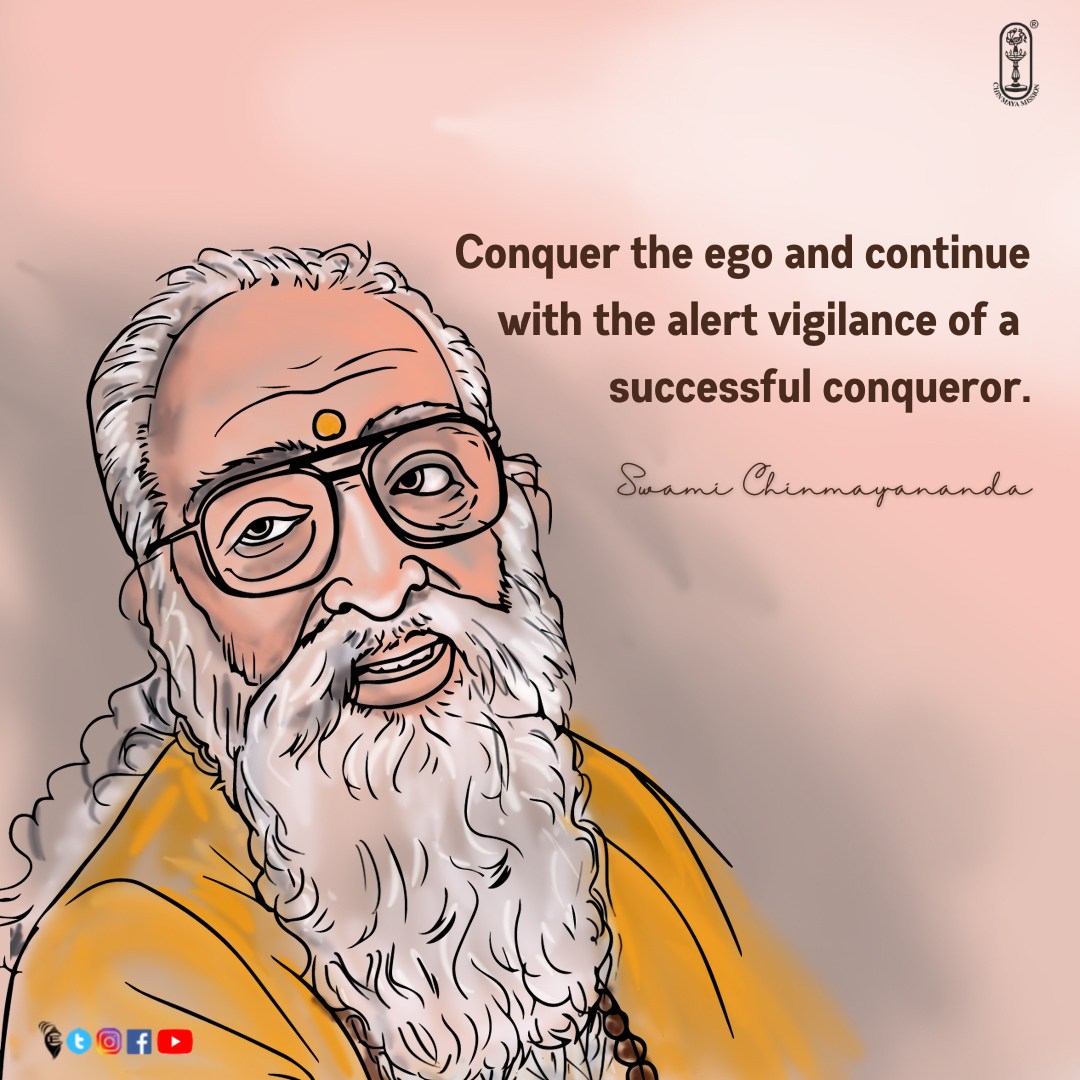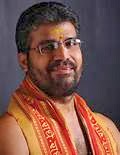The Process of Yoga : 3-8. Swami Krishnananda.
Swami Chinmayananda :
Tragedies come from the world; don’t worry about them. He gives.
He takes away.
Don’t lose your faith in Him.
You offered your worldly and spiritual wealth to the Lord.
When trouble comes, you want it back.
You want something that the Lord decides not to give you.
It is ultimately for your good.
He will protect you.
How dare you worry about it?
In any adversity, there is in its depth a treasure of spiritual blessings secretly hidden.
=========================================================================
Sunday, March 05, 2023. 06:00.
Chapter 3: Recognising the Independent Status of Things-8.
=========================================================================
Chinmaya International Foundation (CIF)
Sri Saji Acharya annually hosts his Yoga Therapy Courses at the serene campus of Chinmaya International Foundation. .
Here’s a peek at the ongoing Yoga camp for advanced teacher training camp
Contact us at welcometocif@chinfo.org to plan your transformative camp or retreat or conference at the CIF campus.
========================================================================
The ethical standard is to be judged by its capacity for universalisation. If a principle can be universalised, we may regard it as the highest ethical standard. Take the example of whether it is good or bad to tell a lie. If we want to test this principle, we just universalise it. If everyone in the world were to tell only lies, would it be all right? Not one person will tell the truth; everyone will lie. Then the world will not go on. Because we would not like lying to be universalised, lying is not an ethical standard. Suppose everyone in the world is a thief; will it be all right? Theft cannot be universalised. Suppose everyone in the world is incontinent; will it be all right? Incontinence cannot be universalised. Therefore, any principle that is capable of universalisation can be regarded as a standard.
But there is no such thing as an ultimately universal ethical standard. When it assumes the status of universality, it goes beyond morality. The ultimate reality is supermoral. It is not moral or ethical in the ordinary sense of the term. When we become spiritual, we rise above the moral standard. The saint's conduct, the sage's behaviour, is not merely ethical or moral behaviour. It is a metaphysical, a philosophical or a spiritual attitude incapable of comprehension by the ordinary mind.
We have to rise to this level in yoga. To attain this, we have to withdraw our relationships which are of a social character, a empirical type, and accept the pure scientific status in ourselves. This is Atmattva. The highest scientific principle is the Atman. That is the Self of all beings. To recognise the independence of a person or a thing is to recognise the selfhood of that person or object. How would we regard or respect the selfhood or the essentiality of a person or a thing? It is by, for a moment of time, entering into the feeling of that person. If we can think as that person thinks, feel as that person feels, exist as that person would exist, we have not only demonstrated the highest ethical standard in the world, but also done the greatest good to our own self by rising to a spiritual level of judgment and recognition.
Yogic adepts became masters of forces due to this technique of the recognition of the value in things. The more we become intimate with a person or a thing, the more is the power or the control that we gain over that person or thing. And the highest intimacy is non-separability. When we become inseparable from an object, we have asserted the highest reality over it. The more we become distinct from that object, the less is the control that we have over it. Sarvaṁ tam parādād yo'nyatrātmano sarvaṁ veda (2.4.6), says Yajnavalkya in the Brihadaranyaka Upanishad. To the extent we regard things as outside us, to that extent we have no control over them. They shall flee from us, they shall run away from us, they shall disregard us. And there shall be bereavement, destruction and death; and transmigration, the process of birth and death, cannot be avoided.
Thus, yoga is an affirmation of the independent status of things. This is what all the scriptures describe in various ways, in different phrases and languages. The independent status of things is the status that we occupy in our own self in regard to our own self. This is the metaphysical status, the philosophical or the spiritual status. This is the scientific relationship of things, independent of the made-up or the concocted, artificial relationship that we manufacture for the sake of practical convenience in our day-to-day life. That means to say, we have to become very honest and not hypocritical in our conduct. We must be honest in the sense that we must speak and act in a manner which is in consonance with what we think and feel in our hearts.
*****
To be continued
=========================================================================











Comments